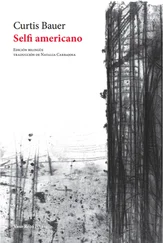Curtis Sittenfeld - American Wife
Здесь есть возможность читать онлайн «Curtis Sittenfeld - American Wife» весь текст электронной книги совершенно бесплатно (целиком полную версию без сокращений). В некоторых случаях можно слушать аудио, скачать через торрент в формате fb2 и присутствует краткое содержание. Жанр: Старинная литература, на английском языке. Описание произведения, (предисловие) а так же отзывы посетителей доступны на портале библиотеки ЛибКат.
- Название:American Wife
- Автор:
- Жанр:
- Год:неизвестен
- ISBN:нет данных
- Рейтинг книги:4 / 5. Голосов: 1
-
Избранное:Добавить в избранное
- Отзывы:
-
Ваша оценка:
- 80
- 1
- 2
- 3
- 4
- 5
American Wife: краткое содержание, описание и аннотация
Предлагаем к чтению аннотацию, описание, краткое содержание или предисловие (зависит от того, что написал сам автор книги «American Wife»). Если вы не нашли необходимую информацию о книге — напишите в комментариях, мы постараемся отыскать её.
American Wife — читать онлайн бесплатно полную книгу (весь текст) целиком
Ниже представлен текст книги, разбитый по страницам. Система сохранения места последней прочитанной страницы, позволяет с удобством читать онлайн бесплатно книгу «American Wife», без необходимости каждый раз заново искать на чём Вы остановились. Поставьте закладку, и сможете в любой момент перейти на страницу, на которой закончили чтение.
Интервал:
Закладка:
Years ago, shortly after Charlie and I moved to Milwaukee and joined the country club in the late seventies, we went there for dinner one night, to the main dining room on the first floor, and I excused myself from the table to use the ladies’ room. There was a lounge-like anteroom, a pretty area with couches and a dressing table and walk-in closets for hanging coats, a place where, sometimes at large parties, you’d find women chatting or applying their makeup. This was the first time I’d ever been in it, and once you entered the anteroom, you saw two more gold-handled doors: one directly across from the one you’d just come through and one to your left. I was trying to find the toilet stalls, and rather than asking one of the three older women then sitting on the couches—I say older, though they were no doubt younger than I am now, and stylishly dressed—I took a guess and walked forward to the door that was farther away. When I opened it and stepped through, I found myself back in the dining room where Charlie and I had been eating. I immediately realized there were two separate ladies’-room entrances; obviously, the toilets were behind the door I hadn’t tried. The logical thing at that point would have been to turn around, but I felt self-conscious. I was unaccustomed to country clubs, I imagined the women in the anteroom would notice and think me silly, and so, with a full bladder, I rejoined Charlie and didn’t urinate until we arrived home over an hour later. What I mean to say is that a part of me understands Charlie’s behavior. I understand it because I love him, because I am predisposed to sympathize, but I also think that, unlike many in government or the media, I don’t ascribe to people’s loftier motives just because they’re in a loftier place.
It seems to me that after the terrorist attacks in 2001, Charlie panicked. And Arnold, who had a professional history with these countries, who had already sparred a decade before with the dictator of one, swiftly stepped in with recommendations. He was hawkish, he believed in America protecting its superpower status, and he was confident of victory. He convinced Charlie, or Charlie convinced himself—establishing democracy in the Middle East, what a legacy that would be—and the rest has followed. The part that caught me by surprise was how the American people and the American media egged him on, how complicit they were in Charlie’s cultivation of a war-president persona. The terrorist attacks have given President Blackwell a heretofore undemonstrated seriousness of purpose, averred Time. Or, as The Washington Post put it, If there is a silver lining to these tragic events, it’s that President Blackwell has risen to the occasion as a leader . . . In the Times, an unsigned editorial was titled simply “Blackwell’s Finest Hour.” Had none of these people ever taken Psychology 101? Did they honestly believe Charlie, or anybody, changed in a matter of days? Did they think because, amid the rubble in lower Manhattan, he climbed atop a fire truck and spoke into a megaphone with resolve and sympathy, he was a new man? Charlie had always had the capacity for resolve and sympathy, which had nothing to do with whether invading other countries was a good idea.
I don’t mean to minimize how frightening the terrorist attacks were, how confused everything seemed in their aftermath. We all thought, of course, that the fourth plane was headed for the White House that day, and so they hurried me and Arnold Prouhet to Camp David on helicopters (Charlie was giving a speech in Ohio to a real estate association, a speech he famously declined to interrupt, and I didn’t see him until that night; when we hugged, when I had him in my arms, it was the first time since learning of the attacks that I wept). Even after we returned to the White House, we were evacuated several more times during the next few days, and once, in the middle of the night, we were rushed by agents from our bedroom to the Emergency Operations Center, an underground bunker beneath the White House. Then there were anthrax spores being sent through the mail, the threat of smallpox bombs. Charlie and I visited Pentagon burn victims, and later we met family members of men and women killed in New York, among them young children, and every morning I read the Times ’s “Portraits of Grief ”—I read them all, and they were devastating. So it was a strange, difficult time, and we were in the thick of it. I don’t doubt that both Arnold and Charlie had to harden in certain ways during this period, that their toughness wasn’t just masculine bluster; it was interior as well, and for the benefit of others.
Nevertheless, I feel a growing suspicion that Charlie continues to fight this war for much the same reason I couldn’t bring myself to reenter the ladies’ room at the Maronee Country Club, and he even has my compassion, except for this—that night at the club, when I needed to urinate and hadn’t, the only one who suffered for my foolishness was me.
RIGHT BEFORE OUR plane landed at Andrews Air Force Base, I said to Jessica, “I have one more stop for us before going home. I’d like to go talk to Edgar Franklin.”
Jessica’s eyes widened. “Now?”
“I promise this’ll be it.”
“It’s just that, I don’t know how long you’d envision talking to him, but the gala starts an hour and a half from now. As it is, you’ll have to get dressed at warp speed.”
“Are you trying to tell me you think going to see him is a bad idea?”
“No—no, I—” She broke off. The two of us were sitting with our seat belts fastened for landing. “Hank will kill me for saying this, but I think it’s a great idea. I just think tomorrow is better than today.”
“He’s spent five nights out there. That’s long enough.”
Jessica looked at me for several seconds, and then she said, “Okay.”
“Only tell the agents. I don’t want to try getting Charlie’s blessing, or Hank’s, because we both know they’ll try to talk me out of it.”
And this is how we’ve found ourselves racing up Suitland Parkway in our caravan of armored limousines. (Although I prefer the SUVs to the limos because they seem slightly less ostentatious, limos are what the White House sent; that I could have gone to Edgar Franklin in a Town Car was, I knew, out of the question, far too great a security risk.) The flickering lights and blasting sirens create the usual mortifying theatricality, but I don’t see another option. I would not be authorized on my own to invite Edgar Franklin to the White House, and if I suggested it, even if I could convince Charlie and his advisers that it was the right thing, it would have to be elaborately choreographed.
I got off easy—that’s what it feels like. That Gladys Wycomb’s threat was a false alarm has left me relieved but also disappointed. I wouldn’t say that I’m compelled to go see Colonel Franklin because of a need to exchange one revelation for another—so the American public can learn today not about my abortion but instead about my sympathies for an antiwar activist—but being forced to consider Gladys Wycomb’s threat made the threat less ominous than it would have appeared in the abstract; it made it almost enticing. I have felt so strongly since Charlie entered public office that my foremost duty is to take care of him, to be the one person he sees on a daily basis who’s not paid to agree or disagree with him, who really is just a friend. Is it startling, then, that I wasn’t altogether displeased by an event that would draw attention to my disagreement with his stance on a particular issue without my being the one who’d revealed our conflicting views? Could that have been the best of both worlds, that I could publicly and even privately lament Dr. Wycomb’s indiscretion while feeling a silent gratitude?
Читать дальшеИнтервал:
Закладка:
Похожие книги на «American Wife»
Представляем Вашему вниманию похожие книги на «American Wife» списком для выбора. Мы отобрали схожую по названию и смыслу литературу в надежде предоставить читателям больше вариантов отыскать новые, интересные, ещё непрочитанные произведения.
Обсуждение, отзывы о книге «American Wife» и просто собственные мнения читателей. Оставьте ваши комментарии, напишите, что Вы думаете о произведении, его смысле или главных героях. Укажите что конкретно понравилось, а что нет, и почему Вы так считаете.












